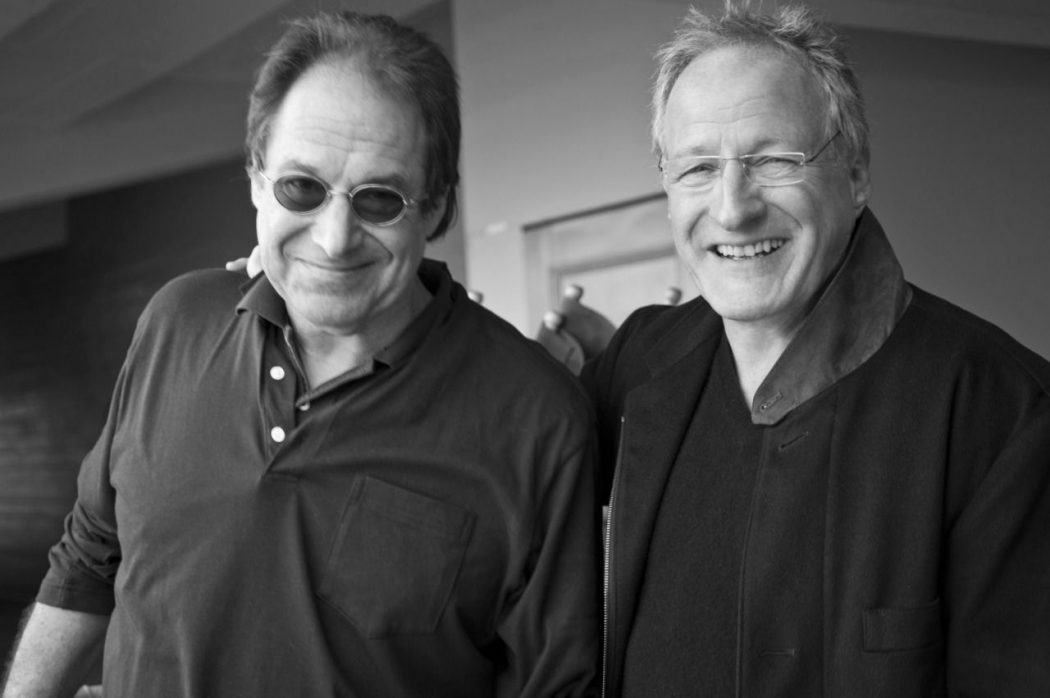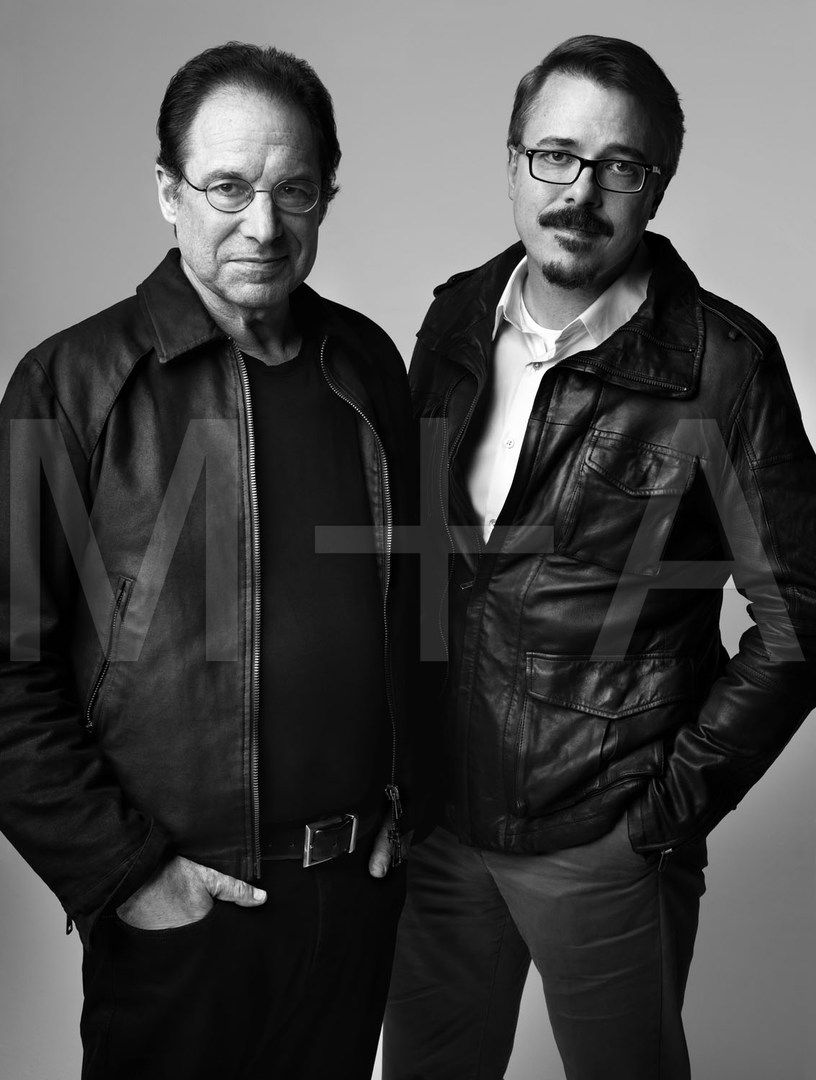The legendary David Milch—acclaimed writer-producer of Hill Street Blues, Brooklyn South, NYPD Blue, Deadwood, John from Cincinnati, Luck—gave a series of lectures at the Writers Guild Foundation in 2007. Courtesy of Marc Ostrick, in this five volume lecture series recorded at the Writer’s Guild Theatre, Milch uncovers the consciousness behind the act of storytelling. Dissecting it in psychological, socio-cultural, anthropological and spiritual terms, Milch leads the writer through a journey of self-discovery as he reveals the thought processes behind creative writing. Milch dispels fears of blocks and other self-imposed obstructions the writer faces with his own brand of gritty, forthright and blunt insight. Like a sermon being delivered by a master shaman, he approaches the act of storytelling with a point of view that interweaves a sentient psychological analysis with an understanding of man’s historical impulse to communicate. With this video lecture series, Milch delivers an unprecedented, unique approach to dramatic writing sure to enlighten and inspire.
LECTURE ONE: “SHADDAP, I’M TELLING A STORY”
In LECTURE ONE, Milch introduces the emerging writer to the concept of “paradoxical doubleness,” inherent in the craft of writing: that of being simultaneously within the story and outside of it during the act of creation. An exercise is suggested, to be completed by the writer before beginning the second video. Chapter headings include: The Writer’s Doubleness, Sinking the Roots Deeper, Behavioral Strategies, and The Sacramental Storyteller.
LECTURE TWO: “HE KEPT SHOWING UP”
In LECTURE TWO, Milch uncovers the psychological and physiological reasoning behind many writers’ despondent frustration with the work, citing responses to the first week’s exercise as examples. Exploring why writers experience procrastination, anxiety and isolation, Milch unveils the psyche of the writer, exposing problematic relationships to the material such as: pent up resentments, the parental connection, and the need to keep showing up. Chapter headings include: Justified Resentment, Connections to the Work, War Stories of Isolation, and The Words Abide.
LECTURE THREE: “I DON’T HAVE A ROCK”
In LECTURE THREE, Milch explains the human impulse to tell stories through the act of signification, and how this fundamentally affects the creative writer. Engaging anthropological references, Milch demystifies the creative process. Rounding out this third installment, Milch deals with the previous lecture’s exercise and expounds on the virtues of adding a “third voice.” Chapter headings include: The Signifying Process, Accomodating Uncertainty, Future Tense of Joy, and Danger of Incomprehension.
LECTURE FOUR: “THE THIRD VOICE”
In LECTURE FOUR, Milch continues delving into the writer’s altered state of being when engaged in the process, suggesting how to survive uneasiness towards form, creating emotional momentum, and overriding self-imposed rituals that may be antithetical to the work. Milch assesses the writer’s market, along with fellow screenwriter Bill Finkelstein, who offers his own take on what’s commercial. Chapter headings include: Demystifying Creativity, Chemical Constituency, A Spiritual Component, and The Data of Experience.
LECTURE FIVE: “SHARING STORIES”
In LECTURE FIVE, Milch culminates the series with dissecting his own work. Examining scenes from the CBS dramatic television series, BIG APPLE (starring: Ed O’Neil, Donnie Wahlberg, and Michael Madsen), Milch probes the deep emotional truth behind character motivations, the effects of incorporating a “third voice,” the audience’s secret pact with the story and the accessibility of art to everyone. Chapter headings include: Malicious Pleasure, The Character’s Past, Earning Emotions, The Voice of Form, and Art is Democratic.
A special thanks to Larry Wright and the original uploader, Veeshush.
This site will be of plenty of interest to TV fans, but fundamentally it’s for people who want to take their love of TV and transform it into something more practical: actually creating telly that people want to see. These scripts are here because the only way to learn how to write a TV script is to read a LOT of other TV scripts, and there aren’t many places you can do that. So here you can study scripts for existing shows, some of your old favourites, and many that never even made it to air. Figure out what makes an episode work, how to format that spec, why a pilot failed and how to write in four, five or six acts. —TV Writing
Here’s some Deadwood scripts. (NOTE: For educational purposes only). Deadwood: The Complete Series DVD/Blu-ray is available at Amazon and other online retailers. Absolutely our highest recommendation.
Half-hour HBO special on Deadwood and interview with creator David Milch:
After Deadwood—The Missing Season 4: creator David Milch talks about what might have been.
A brilliant video essay/documentary to mark the 10th anniversary of David Milch’s landmark HBO series Deadwood. A stand-alone, nearly half-hour-long piece, co-produced with HitFix, that looks at the show’s style and major themes, as well as its roots in different genres, including the Western and the gangster picture. The title comes from the two-part episode that opened season two of Deadwood—a slight rewording of a Napoleon quote: “History is a set of lies agreed upon.” —Matt Zoller Seitz, A Lie Agreed Upon: David Milch’s Deadwood
David Milch is a literature graduate from Yale who put aside teaching and early aspiration of becoming a novelist to work on and create some of the defining shows of the last 20 years, including NYPD Blue and Deadwood. If any director could be called ‘method’, Milch is that, submerging himself unhealthily in his darker subjects. His work reflects a life lived to extremes: he has admitted cutting acid in Mexico and was thrown out of law school for shooting the siren off a cop car. His latest show Luck, a drama set at a racetrack, was controversially pulled by HBO after too many horses died during its production. One thing is certain, this is a complex man pushing the boundaries of complex drama. —Showrunners, David Milch & Deadwood, Fourth & Main
Below: David Milch and Vince Gilligan by Mark Abrahams.


